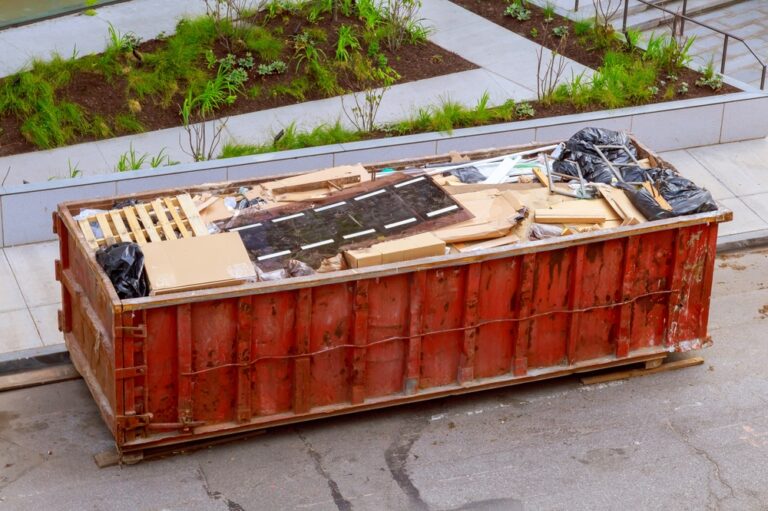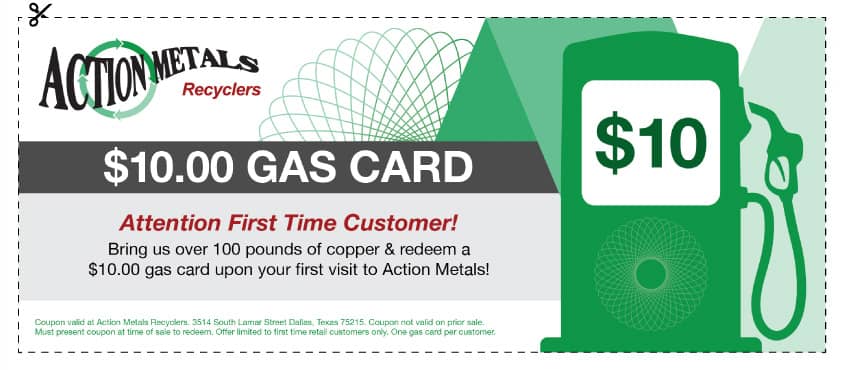Construction sites are hives of activity, where raw materials are transformed into magnificent structures. However, this transformation often leaves behind a trail of waste, including substantial amounts of metal debris. Recycling metal waste from construction sites is not just an environmentally responsible practice; it’s also a smart business strategy. Read on for all the information you need and get plenty of helpful metal recycling tips for builders, too.
Types of Metal Waste Commonly Found on Construction Sites
Metal waste generated during construction projects can come in various forms. Understanding the common types can aid in efficient recycling efforts:
- Steel: Steel beams, girders, rebar, and other structural elements represent a significant portion of recyclable scrap metal from construction.
- Copper: Wiring, pipes, and other copper components are valuable recyclable materials.
- Aluminum: Siding, panels, and other aluminum fixtures are often discarded during construction or demolition.
- Miscellaneous Scrap Metal: Nails, screws, metal strapping, and other miscellaneous metal debris accumulate throughout a project.
The Importance of Construction Site Metal Recycling
Recycling construction debris provides numerous benefits, including:
Environmental Benefits
Recycling reduces the need for mining virgin materials, saving energy, conserving natural resources, and minimizing greenhouse gas emissions. It also helps divert waste from landfills, extending their lifespan and reducing pollution.
Cost Savings
By partnering with a reputable recycler, you can potentially generate revenue from your metal scrap. This can help offset disposal costs and improve your project’s bottom line.
Compliance
Many local and state regulations mandate the recycling of construction and demolition debris, including metal waste. Adhering to these requirements helps you avoid fines and penalties.
Best Practices for Recycling Metal Waste
Implementing effective recycling practices ensures you maximize the value of your scrap metal while minimizing environmental impact. Here are some key strategies:
- Sort and Segregate: Separate different types of metals at the source to streamline the recycling process and enhance the value of your scrap.
- Use Roll-Off Containers: Rent roll-off containers to conveniently collect and transport your metal waste. This eliminates the need for multiple trips to the recycling facility.
- Partner with a Certified Recycler: Choose a reputable and certified recycling facility that adheres to environmental standards and offers fair prices for your scrap metal.
Benefits of Metal Recycling for Construction Companies
Beyond environmental responsibility, recycling metal waste offers several advantages for construction businesses:
- Reduced Landfill Costs: Recycling can significantly lower your disposal expenses by diverting metal waste from landfills.
- Social Responsibility: Demonstrating a commitment to sustainability can enhance your company’s reputation and attract environmentally conscious clients.
- Potential Tax Incentives: Some regions offer tax benefits or credits for recycling construction and demolition materials, providing additional financial incentives.
Safety Tips for Handling Metal Waste
Safety should always be a priority when handling metal waste on construction sites. Consider these precautions:
- Proper Handling and Storage. Train workers on proper handling techniques to avoid injuries from sharp edges or heavy objects. Securely store metal waste to prevent accidents.
- Safety Equipment and Training. Provide appropriate personal protective equipment (PPE) and ensure workers receive adequate training on safe handling procedures.
- Avoid Contamination. Prevent contamination of recyclable metals by separating them from other debris, such as wood, plastic, and concrete.
How to Choose the Right Recycling Partner
Selecting a reliable recycling partner is crucial for a smooth and profitable recycling process. Here are some factors to consider:
- Certifications and Permits: Ensure the recycler holds the necessary licenses and certifications to operate legally and responsibly.
- Experience and Expertise: Look for a company with extensive experience in handling construction and demolition waste and a track record of fair dealings.
- Pricing and Payment Terms: Compare prices offered by different recyclers and choose one that offers competitive rates and transparent payment terms.
- Convenience and Accessibility: Select a facility that is conveniently located and offers flexible collection and drop-off options.
Action Metals Recyclers | Supporting Sustainable Construction
Recycling metal waste from construction sites is a vital step toward building a more sustainable future. By adopting responsible recycling practices, you can reduce your environmental footprint, improve your bottom line, and contribute to a cleaner and greener world.
Action Metals Recyclers are dedicated to promoting sustainable practices in the construction industry. We provide comprehensive metal recycling solutions tailored to the needs of construction sites in the Dallas-Fort Worth area.
Our services include:
- Competitive Pricing: We offer fair and transparent pricing for your scrap metal, ensuring you receive maximum value.
- Convenient Collection: Our roll-off container service makes it easy to collect and transport your metal waste efficiently.
- Environmentally Responsible Practices: We adhere to strict environmental standards and prioritize responsible recycling methods.
Take the first step toward sustainable construction practices. Contact Action Metals Recyclers today for reliable and efficient metal recycling services tailored to your needs. And remember, every piece of metal recycled is a victory for the environment and your business. Together, let’s build a brighter future, one recycled metal at a time. Reach out today.







